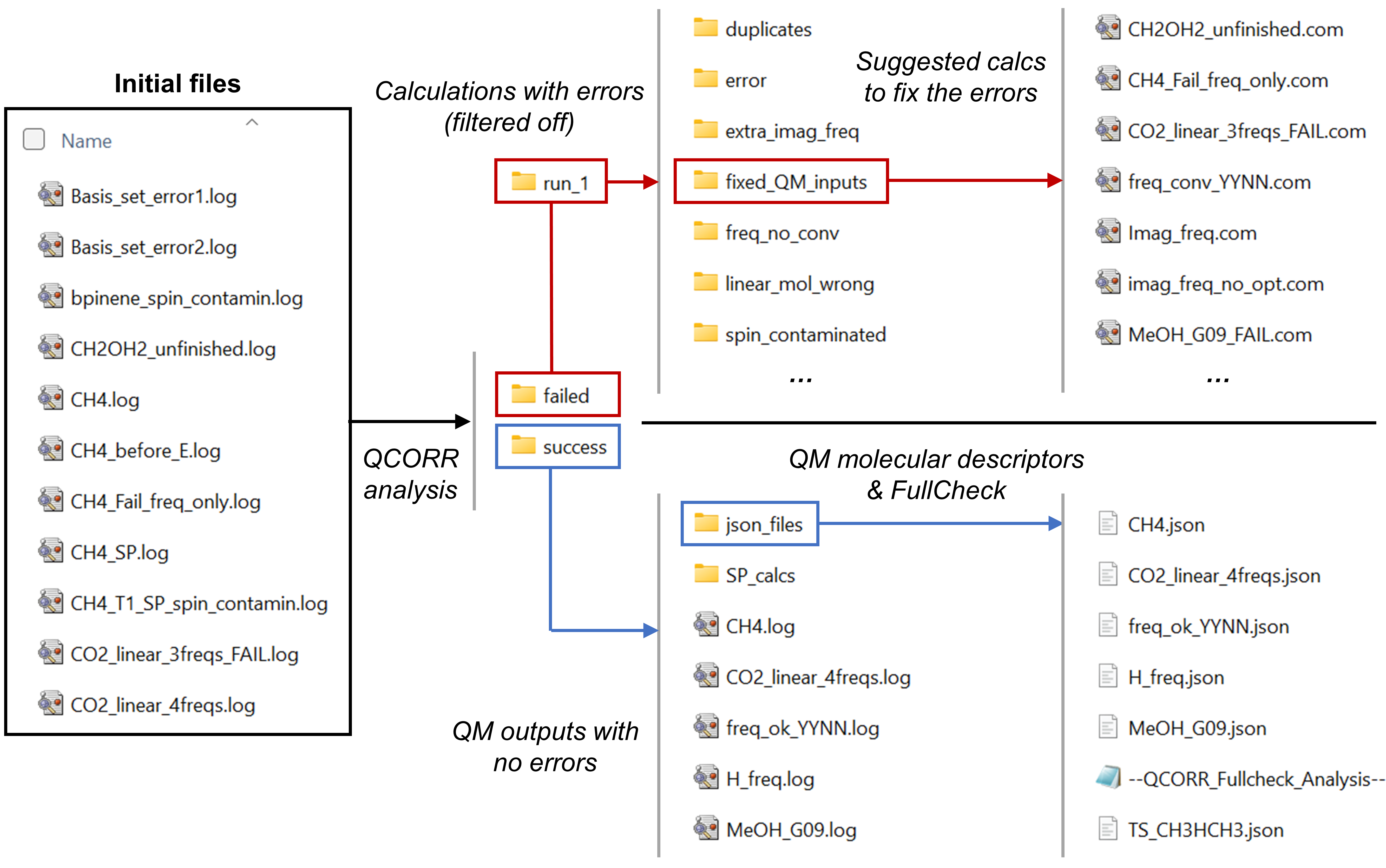Correction of QM Output
The QCORR module focuses on the analysis and correction of the output files of QM calculations. Here we refer to correction as:
Generate new inputs from calculations that have an error termination.
Generate new inputs for minima containing a small imaginary frequency
Ensure that all provided files have the same level of theory, grid size, program, version, etc.
The following scheme shows how QCORR works and how it sorts the calculations.
Analyzing the output files
For these tasks we will be using the QCORR module --qcorr
Then we list the files that we want to analyze. In this case we are going to
analyze Gaussian16 output files. We are going to assume that we have our
files in the folder 'calculations' therefore --files "calculations/*.log"
Warning
Please notice that shell wildcard arguments need to be provided as strings.
--files "calculations/*.sdf" should be provided instead of
--files calculations/*.sdf. This feature might change in future to
follow the usual conventions.
We can specify the --freq_conv "opt=(calcfc,maxstep=5)" which will
attempt to fix calculations whose optimization ended normally but whose
frequency calculation did not.
Finally we run the analysis of the files.
python -m aqme --qcorr --files "calculations/*.log"
Optionally we may indicate the extension of the initial input files
--isom_type com as well as the folder where those files are
--isom_inputs folder.
python -m aqme --qcorr --files "calculations/*.log" --isom_type com --isom_inputs folder
If we instead wanted to skip the checks and generate the .json files containing
information about our calculations we can use the --fullcheck False keyword.
python -m aqme --qcorr --fullcheck False --files "calculations/*.log"
